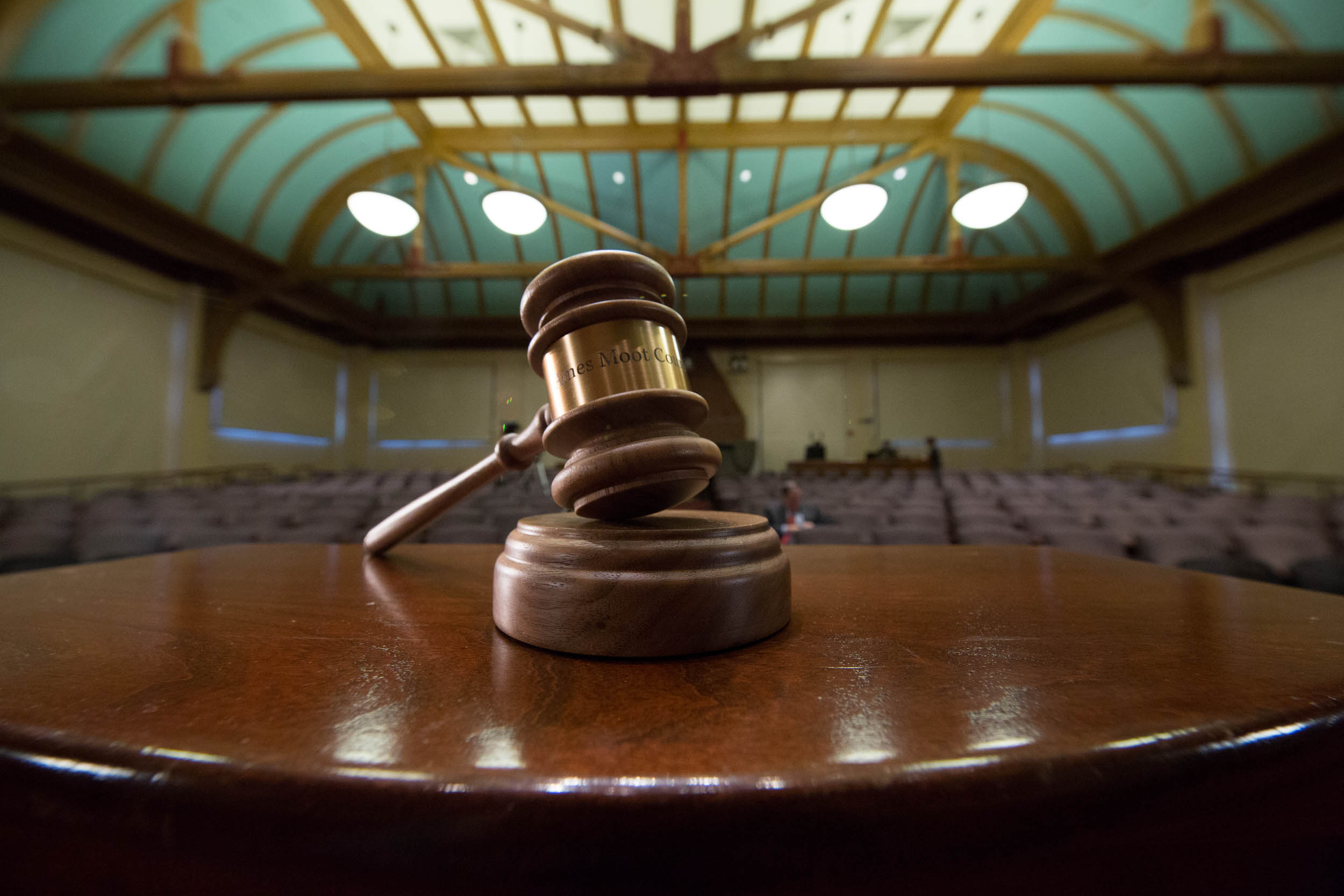Welcome to CR-CL’s Live Blog of the Ames Moot Court Finals!
Please scroll down for the live blog. We’ll start blogging shortly before 7:30 pm on November 13, 2018.
The Ames Competition is one of the most prestigious competitions for appellate brief writing and advocacy in the country. This year’s final round competition will be judged by the Honorable Sonia Sotomayor, Associate Justice of the Supreme Court of the United States, the Honorable Jennifer Walker Elrod of the United States Court of Appeals for the Fifth Circuit, and the Honorable Susan Carney of the United States Court of Appeals for the Second Circuit.
Groves v. Gallant
Petitioner Ian Groves is a lifelong firearms enthusiast. In recent years, Groves developed an interest in 3D-printing technology, and he became highly skilled at creating a form of computer code, known as a CAD file, that can program a 3D printer to print a 3D object. Groves has created a CAD file that can be used to print a 3D firearm he has named “The Releaser,” and he wants to publish his design on the Internet so that individuals in Ames can freely print handguns. Groves would also like to possess firearms for self-defense and for the defense of his family. Ames law prohibits Groves from possessing a gun or from uploading his CAD file for The Releaser to the Internet. Under Ames Rev. Stat. § 18-133(a), Groves cannot possess a gun because of his prior criminal history. In 2002, Groves was convicted of three counts of manufacturing fake IDs for himself and two college friends. Those crimes, which were classified as misdemeanors under state law, were punishable by up to five years of imprisonment—although Groves was sentenced to probation instead of jail time. Section 18-133(a), which incorporates federal law, prohibits an individual from possessing a firearm if he has been convicted of a state misdemeanor punishable by more than two years of imprisonment. Groves accordingly is barred from possessing guns, although he has not committed any crimes since his 2002 convictions.
Ames law also prohibits individuals from publishing CAD files on the Internet that can be used to automatically program a 3D printer to print a firearm. The Ames Legislature enacted that restriction, Ames Rev. Stat. § 18-726(a), after an assailant used a 3D-printed gun to kill family members in a domestic dispute. The Ames Legislature found that the proliferation of 3D-printed firearms would pose a threat to public safety because they can be printed by dangerous individuals who are prohibited from possessing firearms under state and federal law, they lack serial numbers necessary for tracing, and they can be printed entirely out of plastic and so evade metal detectors at security checkpoints.
Groves filed suit against state officials to challenge both provisions of Ames law. He contends that Section 18-133(a) violates the Second Amendment as applied to him because, notwithstanding his criminal history, he remains within “the people” who have a fundamental right “to keep and bear Arms.” And he argues that Section 18-726(a) violates the First Amendment because it regulates protected speech and cannot survive constitutional scrutiny. The district court rejected those arguments and the Ames Circuit affirmed.
The Supreme Court granted certiorari to consider:
(1) Whether Ames Rev. Stat. § 18-133(a) violates the Second Amendment as applied to Groves; and
(2) Whether Ames Rev. Stat. § 18-726(a) violates the Free Speech Clause of the First Amendment.
The Grace Murray Hopper Memorial Team
Max Gottschall*
Erika Herrera
Benjamin Lewis
Catherine McCaffrey*
Eliza McDuffie
Jacqueline Sahlberg
The Clarence Earl Gideon Memorial Team
Jeff Adler
Nick Aquart*
Gabrielle Belzil
Marlan Golden*
Lily Kim
Daniel Morales
*Oralist

